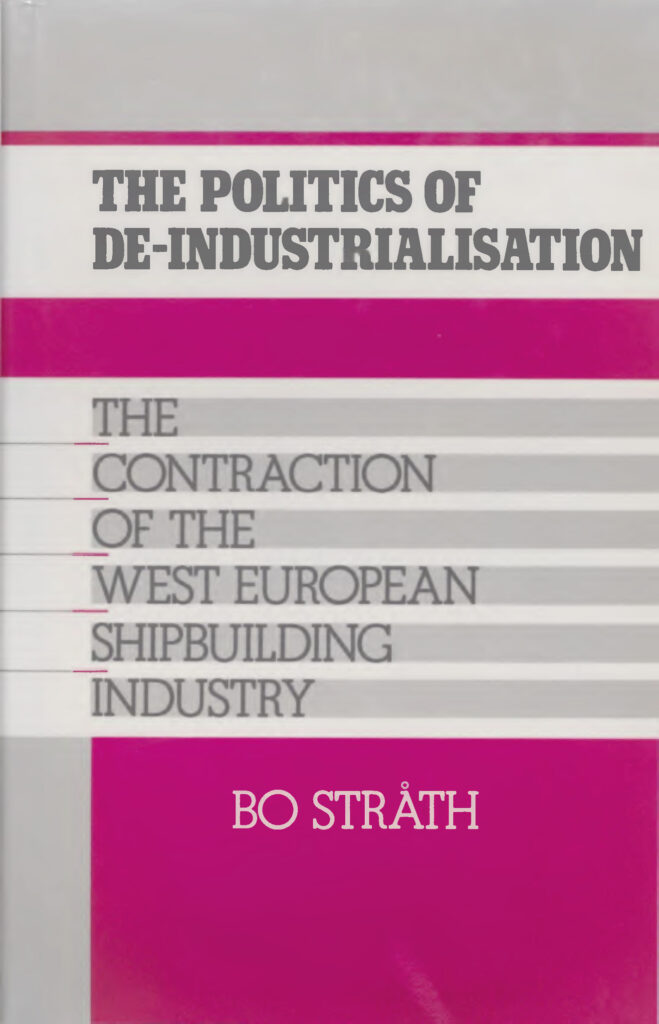The Contraction of the West European Shipbuilding Industry

The Politics of Deindustrialisation. The Contraction Process of the West European Shipbuilding Industry. Croom Helm, London 1987. xi+295 pp. (Spanish edition: La Politica de Desindustrializacion. La Contraccion de la industria de la construccion naval en Europa Occidental, Ministero de Trabajo y Seguridad Social, Madrid 1989)
Abstract
Surprisingly, as industries in Western Europe have contracted and unemployment has risen, there has been relatively little social unrest. How have so many large industries been run down so peacefully? This book discusses this important question.
Taking the example of the shipbuilding industry, where contraction has been particularly pronounced and where the workforce has, in some countries, a strong tradition of militancy, the book shows how employers, trade unions and governments came together to bargain over reduction and to manage a reduction in a planned way. Based on extensive original research, including interviews with participants, the book examines the different backgrounds and different approaches adopted in different countries, covering the period from the 1960s to the present. Drawing on the research findings, the author draws general conclusions about the nature of conflict in industrial society, the place of trade unions and the state’s role in the political process.
The tripartite negotiations in the FRG, France, the UK, Sweden, the Netherlands, and Denmark were investigated, and different patterns of power relationships were discerned. The main question was what factors contributed to a relatively peaceful and smooth contraction process without great political and social upheavals despite unemployment figures far above 10 per cent in many West European shipbuilding regions. This book focuses on the interaction between different actors in the political domain and socioeconomic processes. The book’s main theme is the complex interactions between the political processes, their own laws of motion, and the economic logic of industrial and technical progress. Similarities and differences form a main theme, attempting to integrate the experience into a theory of the state and pressure groups in democratic societies. The work on this project entailed extensive research journeys over more than seven months (in addition to invitations as a visiting research fellow) to some ten West European and four Asian countries. Over 150 decision-makers in government administrations, cabinets, industry, and trade unions at local, national, and international levels were interviewed. Scholarly contacts were developed at the universities in Berlin (FU and TU), Bielefeld, Bremen, Cambridge, Hamburg, Glasgow, Kiel, Liverpool, Nantes, Paris, and Tokyo.




































